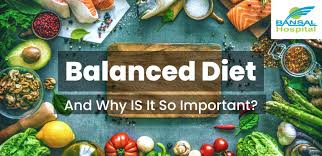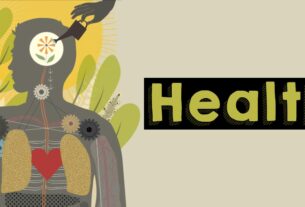The Importance of a Balanced Diet: Key Elements and Benefits
A balanced diet is often described as the cornerstone of good health. It entails consuming a variety of foods in appropriate proportions to ensure your body gets all the essential nutrients it needs for optimal functioning. This article explores the fundamentals of a balanced diet, its key components, and the numerous benefits it offers.
What Constitutes a Balanced Diet?
A balanced diet includes a mix of different food groups in the right quantities to provide the necessary nutrients:
1. Fruits and Vegetables: These are rich sources of vitamins, minerals, antioxidants, and fiber. Aim to incorporate a variety of colors and types to maximize nutrient intake.
2. Proteins: Essential for muscle repair, growth, and overall body function. Sources include lean meats, poultry, fish, beans, nuts, and legumes.
3. Carbohydrates: Provide energy and are found in foods like whole grains, bread, pasta, and rice. Opt for whole grains over refined carbohydrates for added fiber and nutrients.
4. Dairy or Alternatives: Rich in calcium and vitamin D, crucial for bone health. Options include milk, cheese, yogurt, and fortified plant-based alternatives.
5. Fats: Healthy fats, such as those found in nuts, seeds, avocados, and olive oil, are important for brain function and overall health. Limit saturated and trans fats found in processed foods.
6. Hydration: Water is essential for various bodily functions, including digestion, temperature regulation, and nutrient transport. Aim to drink plenty of water throughout the day.
Benefits of a Balanced Diet
1. **Nutrient Sufficiency**: Ensures your body receives all essential nutrients, reducing the risk of deficiencies and associated health issues.
2. **Weight Management**: Helps maintain a healthy weight by providing the right amount of calories without excess.
3. **Improved Energy Levels**: Balanced meals fuel your body effectively, promoting sustained energy throughout the day.
4. **Enhanced Mood and Mental Well-being**: Nutrient-rich foods can positively impact mood and cognitive function.
5. **Reduced Risk of Chronic Diseases**: A balanced diet can lower the risk of conditions such as heart disease, diabetes, and certain cancers.
6. **Healthy Aging**: Proper nutrition supports cellular repair and longevity, contributing to healthy aging.
Practical Tips for Achieving a Balanced Diet
– **Plan Meals**: Incorporate a variety of foods from each food group into your daily meals and snacks.
– **Portion Control**: Be mindful of portion sizes to avoid overeating, especially with calorie-dense foods.
– **Read Labels**: Check nutrition labels to make informed choices about the foods you consume.
– **Limit Sugary and Processed Foods**: These should be consumed sparingly as they often lack essential nutrients.
– **Listen to Your Body**: Pay attention to hunger and fullness cues to maintain a healthy relationship with food.
Conclusion
A balanced diet is not about strict limitations, but rather about making informed choices that nourish your body and support overall health. By prioritizing a variety of foods and moderation, you can enjoy the benefits of increased energy, improved mood, and reduced risk of chronic diseases. Remember, small changes can lead to significant improvements in your well-being over time. Strive for balance, and your body will thank you for it.




